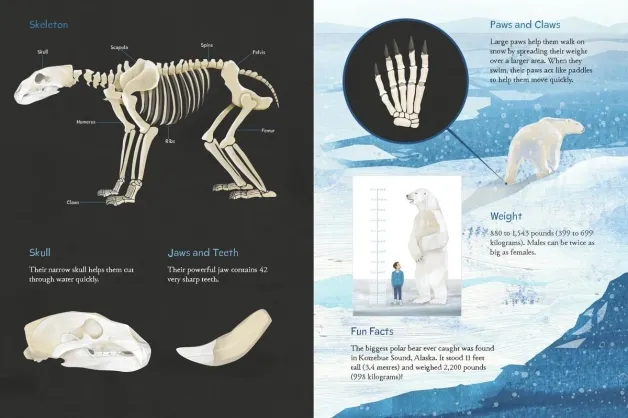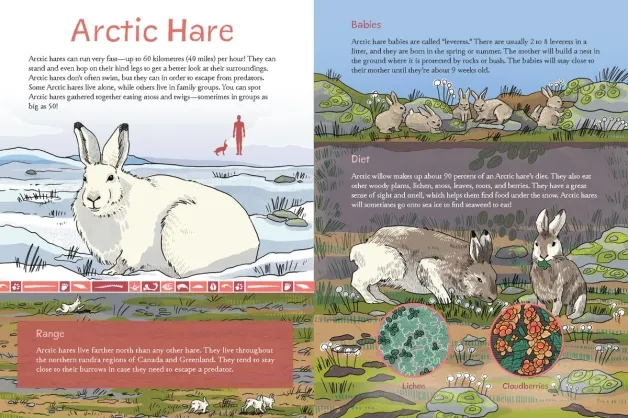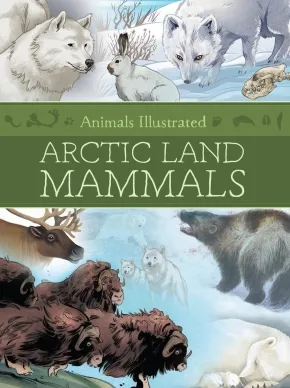Animals Illustrated: Arctic Land Mammals
Synopsis:
Preview Images (2)

Animals Illustrated mixes fun-filled animal facts suitable for the youngest of readers with intricately detailed illustrations to create a unique and beautiful introduction to Arctic animals for young readers. This collection of material from the Animals Illustrated series gives readers a focused understanding of how land mammals survive in the Arctic, what they have in common that helps them withstand the icy cold temperatures, and how their unique behaviours and adaptations help them succeed in this habitat.
Presented in the form of an illustrated children’s encyclopedia, this book provides introductory information about mammals, predator and prey relationships, and how animals adapt to live in the Arctic, before providing detailed spreads with facts about each of the following animals: polar bears, Arctic wolves, Arctic foxes, muskoxen, caribou, wolverines, lemmings, and Arctic hares.
Educator & Series Information
Recommended Ages: 6-8
This book is part of the non-fiction Animals Illustrated series, which mixes fun-filled animal facts suitable for the youngest of readers with intricately detailed illustrations to create a unique and beautiful collection of children’s non-fiction books on Arctic animals. Each volume contains firsthand accounts from authors who live in the Arctic, along with interesting facts on the behaviours and biology of each animal.
Reading Levels
Fountas & Pinnell Text Level Gradient: P
Guided Reading Level: P
Additional Information
48 pages | 8.00" x 11.00" | Hardcover

 Go
Back
Go
Back




